This website uses cookies to store information on your computer. Some cookies ensure the proper functioning of this site, others help us improve the site by allowing us to see how the site is used. By continuing to use this website, you consent to the use of cookies. — More information?

Submission of a dissertation and its publication Guidelines
Information regarding submission and publishing a dissertation thesis:
Dean´s Directive Concerning Theses (No. 17/2017)
Rules of Study at the Faculty of Law of Charles University
Application - Defense of the Dissertation
The elements of a dissertation thesis are set out in the Rules of Study at Faculty of Law of Charles University (Part IV., Chapter III., Article 74) and in Dean’s Directive No. 17/2017 , on final theses . The composition of a dissertation thesis must strictly follow the template provided in Appendix 4 of Dean’s Directive No. 17/2017.
A student must upload the entire dissertation thesis in the Student Information System in PDF/A-1 format, as well as both abstracts (Czech and English) , and an outline of dissertation* thesis, i.e. four files in total.
A student will also submit a written application for the defence of a dissertation thesis in a doctoral programme of study to the Dean through the Student Registry after having successfully passed the state doctoral examination.
Along with an application for the defence of a dissertation thesis, a student will submit a declaration of the fulfilment of all obligations under the approved individual curriculum (IC), confirmed by the supervisor and the guarantor of the programme. The student does not submit said declaration if he/she has, according to the latest completed evaluation study, fulfilled all obligations under the IC except for the defence of the dissertation .
Along with the application for defence, the student also submits the following:
- An updated curriculum vitae signed by the student.
- A list of all publications and activities (confirmed by supervisor)**
- A certificate or confirmation that the dissertation or its partial outputs have been either published or accepted for publication (confirmed by supervisor)
*The outline of the dissertation includes the following parts: The summary of the dissertation, usually in a maximum of 36,000 characters including spaces which states the aims, content, and outcomes of the dissertation, the features of the original solution, and the sources used.
**A list of all professional works of the student, published or unpublished, particularly peer-reviewed articles, chapters in monographs, student’s presentations in seminars, professional conferences, and other professional events as stated in the Student Information System ( and recorded in the OBD ).
I n the list, the student will clearly separate by title the publications in which partial outputs of the dissertation have been published or accepted for publication (they are to be entered in the OBD) . If the partial outputs of the dissertation are yet to be published, the student will provide the relevant confirmation from the editorial office or publishing house together with the list. This also applies if the dissertation is published as a whole.
A dissertation the partial outputs of which have not been published cannot be accepted for the defence.
Section 47 (4) of Act No. 111/1998 Sb., the Higher Education Institutions Act, provides that a dissertation must contain original and published outputs, or outputs accepted for publication. Therefore, a dissertation the partial outputs of which have not been published in the form of a book, a chapter or chapters in a book, a journal article, or a contribution in a collection cannot be accepted for the defence . Publications which represent the publication of a partial output of the dissertation are to be marked in the list of publications. An alternative thereto, particularly in relation to the publication of the dissertation in its entirety in the form of a monograph, is a confirmation by the publisher that they will publish the dissertation . The confirmation of the future publishing must include the name of the author of the dissertation, the name of the dissertation submitted for the defence, the name of the intended publication if different from the thesis submitted, and the signature and stamp of the publisher.
Let's Stay in Touch
All the interesting stuff happening at the faculty and beyond. Follow us at the social networks!
- https://www.facebook.com/pravnickafakultauk/
- https://www.instagram.com/pf_unikarlova/
- https://twitter.com/PF_CUNI
- https://www.linkedin.com/company/pfuk
- https://www.youtube.com/channel/UCSg2hm__vC0Vj__hd1xHBcg/feed

Nevada Today
2024 three-minute thesis competition finalists announced, graduate students will compete in the final event on april 11.
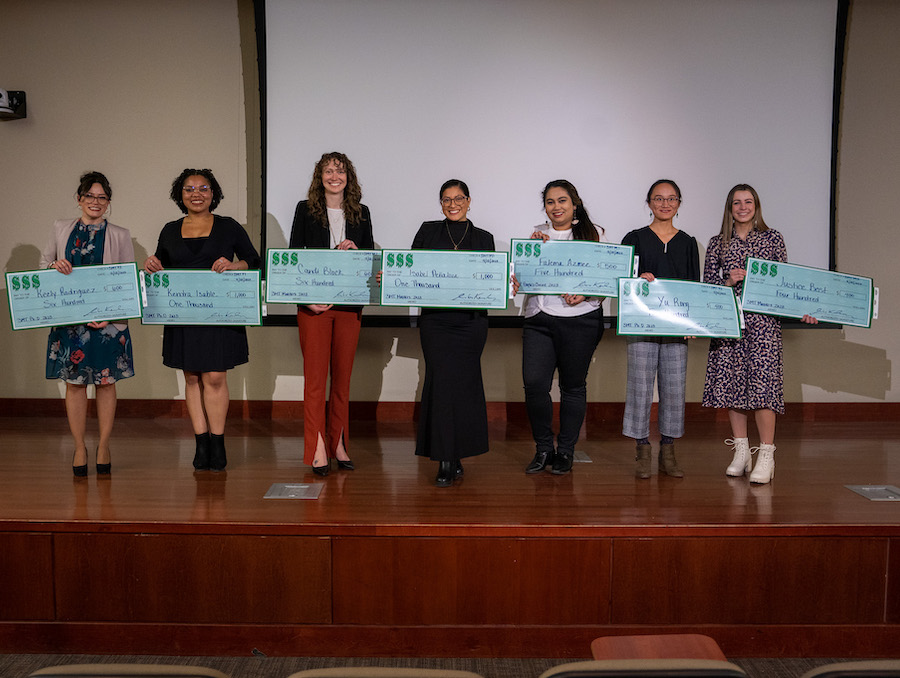
2023 3MT winners from left to right: Keely Rodriguez, Kendra Isable, Candi Block, Isabel Penaloza, Fatema Azmee, Yu Rong and Justice Best.
The buzz is back with the Graduate School’s annual Three-Minute Thesis (3MT) Competition this spring! Earlier this month, 42 graduate students rocked the stage in front of a live audience all vying for a chance to advance to the final round and win cash prizes.
A panel of esteemed University faculty and postdocs had the challenging task of judging this year’s preliminary event, evaluating students’ presentation skills and research content. If you are unfamiliar with 3MT, it is an annual spectacle where master’s and doctoral students are tasked with condensing their research into a lightning-fast, three-minute presentation with only a single slide. It is an adrenaline-fueled sprint through the world of academia!
Since 2015, the Graduate School has hosted this event, showcasing the power, beauty and brilliance of graduate education at the University. In addition, recent winners of this competition have gone on to compete, and place, in regional 3MT competitions putting the University on the map as a hotbed of intellectual prowess.
We are thrilled to announce this year’s 16 finalists (see below) and cannot wait for the final showdown. The 3MT final round of competition is set to take place on Thursday, April 11, at 7 p.m. in the Wells Fargo Auditorium at the Mathewson-IGT Knowledge Center. Students, family, faculty and community members are invited to join us and witness firsthand the awe-inspiring brilliance of our scholars. For those who cannot attend in person, the event will be live-streamed via Zoom so please register here on Formstack to receive the information.
Congratulations to the 2024 3MT finalists! Good luck on April 11.
(The finalists below are listed alphabetically by last name.)
Master’s Category:
- M.A. Criminal Justice
- "What do our phones teach us about incarceration? A social media content analysis"
- M.S. Ecology, Evolution and Conservation Biology
- “Sustaining the beating heart of Cambodia: Fisheries management in southeast Asia's largest lake”
- “Zeroing in on gun violence”
- M.S. Biochemistry
- “May the pericytes be with you: Transport engineers you never knew existed!”
- M.S. Chemistry
- “Chemically recyclable dithioacetal polymers”
- M.A. History
- “Pushed to the limit: How the 1998 China floods revolutionized the relationship between China and the natural world”
- M.S. Teaching History (M.A.T.H.)
- “Dust in the wind dude: The Owens Valley everywhere except, in the Owens Valley”
- “Winterfat restoration in a changing climate”
Doctoral Category:
- Ph.D. History
- “Creating the Enemy: The origins of the inter-American Cold War in the 1940s”
- Ph.D. Biomedical Engineering
- “Electrifying the fight-or-flight response: Nanosecond electric pulses for neuromodulation “
- Ph.D. Education - Literacy Studies
- “P re-service teachers experiences teaching K-8 Multilingual Students' (MLS) writing”
- Ph.D. Clinical Psychology
- “Identifying predictors of racial trauma to inform treatment development “
- Ph.D. Cell and Molecular Biology
- “Lighting the way: Tools to prepare for future pandemics”
- Ph.D. Education - Equity, Diversity and Language
- “Bridging the gaps: Evaluating the intervention programs to overcome academic disparities”
- Ph.D. Civil and Environmental Engineering
- “Accelerating bridge construction connections behavior during near fault motions”
- Ph.D. Political Science
- “Tough sell: Rising powers, domestic legitimation and costly international initiatives”
Research & Innovation
Senators Rosen, Cortez Masto worked with University President Brian Sandoval to secure more than $4 million for research programs at the University of Nevada, Reno
The funding will support research initiatives across the state
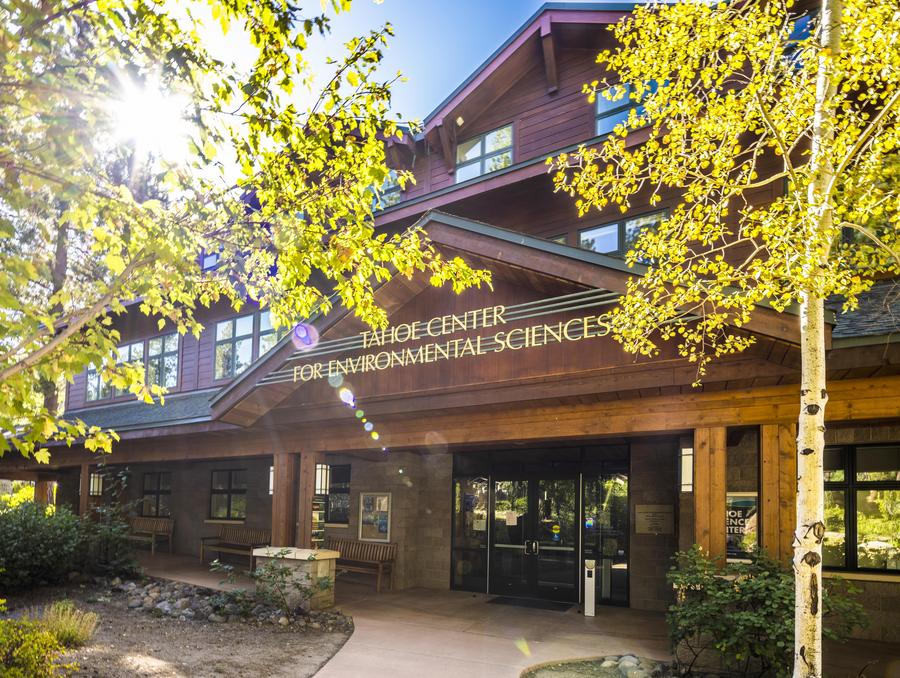
Start-up company Atlas Magnetics ‘graduates’ from University, moves to larger facility
Expecting to make $30M+ of revenue in 2025, modern electronics company sees big growth within two years with equipment, space, other resources supported through NCAR

University of Nevada, Reno and Arizona State University awarded grant to study future of biosecurity
Mitigating risks associated with pandemic pathogen, high-risk biological agents focus of nearly $870,000 NIH-funded project

Civil and Environmental Engineering shows its potential to industry partners at Infrastructure Forum
Research centers and labs showcased at March 18 event
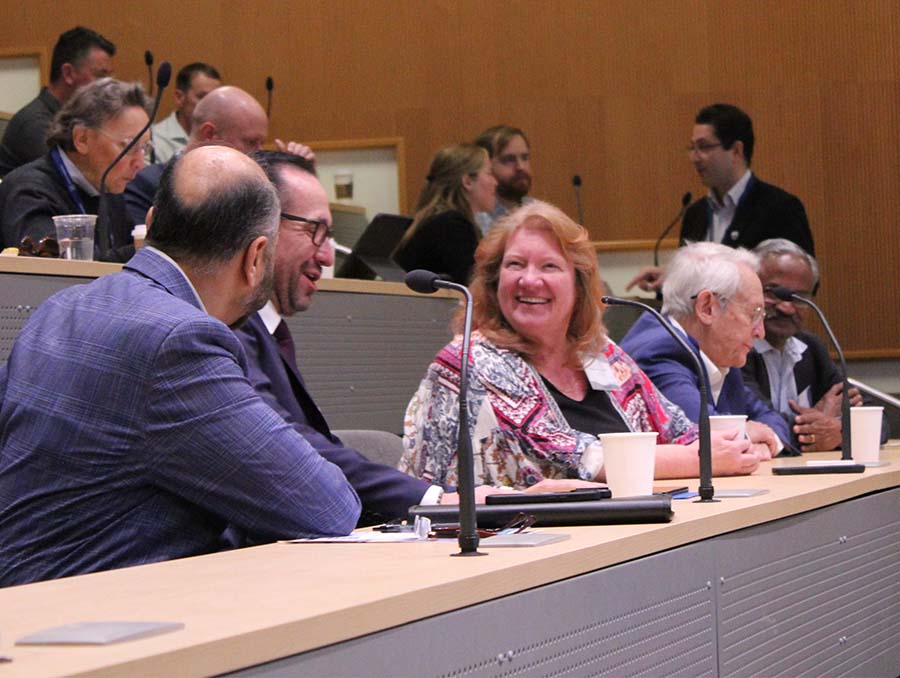
Editor's Picks

A look at careers of substance and impact

NASA astronaut Eileen Collins shares stories at Women in Space event

Neurodiversity Alliance to hold panel and lunch social March 21 during Neurodiversity Celebration Week
KIDS University offers summer camps to keep kids engaged and learning
Registration now open for more than 20 camps to be held on campus June and July

University of Nevada, Reno Beta Alpha Psi shines at BAP Mid-Year Meeting 2024
A recap of success in innovation
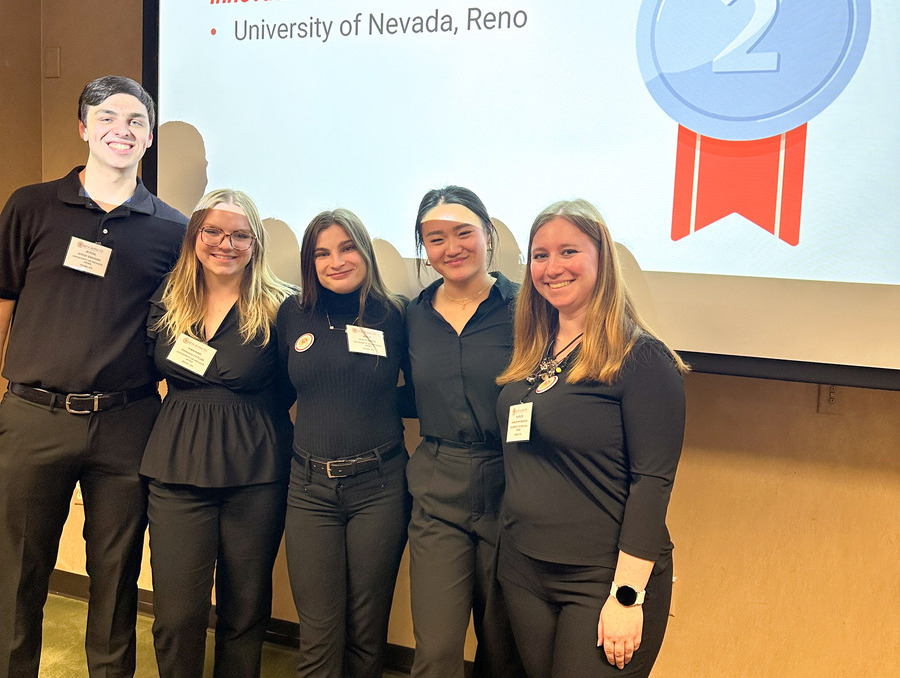
Mackay Muckers take gold in International Collegiate Mining Competition
Ten students traveled to Montana to show off their traditional mining skills

An interview with 2024 Reno City Artist Chris Lanier
University of Nevada, Reno at Lake Tahoe artist and faculty reflects on upcoming art shows and his appreciation of smaller moments in life
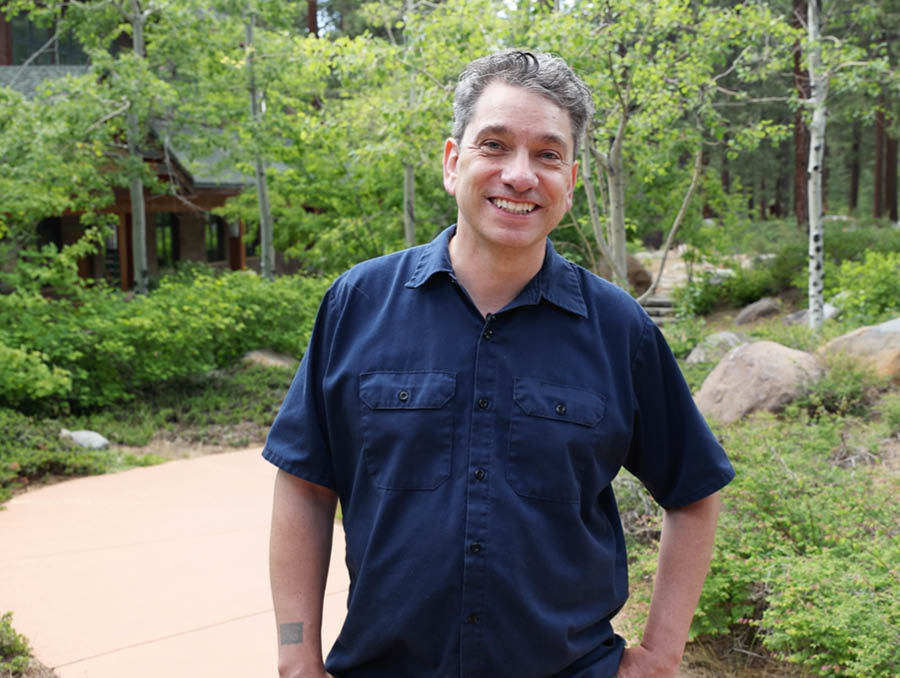
TEDxReno: Spreading ideas, inspiring action, and building community
The independently organized event is on April 6 in Lawlor Events Center and offers $25 tickets for students

Leading the charge in organ donation awareness with UNR Med's SODA chapter
UNR Med student helps fellow future doctors by promoting organ donation education, debunking myths and advocating for empathy
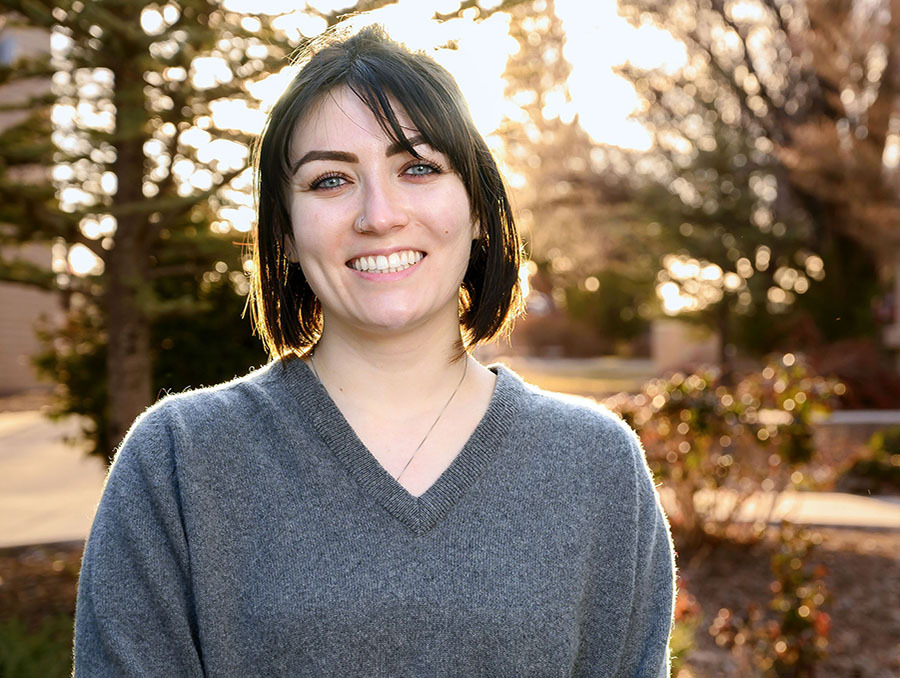
Mark your calendar: College of Education & Human Development Career Fair
The Career Fair will be held on Tuesday, April 2, and will host employers ready to connect with University students

Sagebrushers season 3 ep. 1: College of Business Dean Gregory Mosier
College of Business prepares for the future of business education, enhanced business partnerships and the new building on the south end of campus


IOE - Faculty of Education and Society
- Departments and centres
- Innovation and enterprise
- Teacher Education College

IOE alumni named winners of the 2024 BERA Master’s Dissertation and Doctoral Thesis awards
27 March 2024
Dr Emily Macleod (PhD) and Kate Fox (Education and International Development MA) have won the British Educational Research Association (BERA) Doctoral and Master’s Thesis prizes respectively.
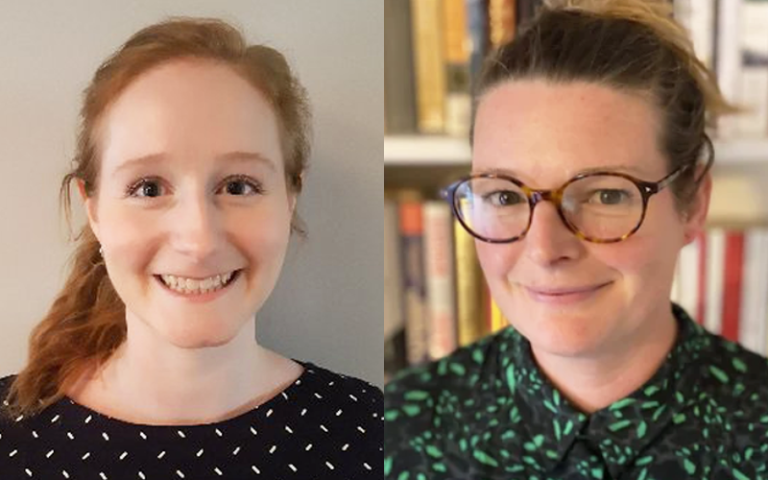
The awards are given in recognition of academic excellence and research rigour within the field of educational research.
Emily Macleod won for her thesis, “The status and safety of teaching: A longitudinal study of why some young people in England become teachers, and why others do not.” She investigated young people’s motivations behind pursuing – or not pursuing – the profession amidst the context of national and international teacher shortages.
She completed her PhD at IOE’s Department of Education, Practice and Society in 2023, and was a co-host on IOE’s podcast series Research for the Real World . She continues on as an honorary postdoctoral fellow. She also worked on the ASPIRES research project studying young people's science and career aspirations, before which she was a secondary school teacher.
Kate Fox won for her MA dissertation entitled “Building bridges or barriers? A study of home, community, and school literacy practices in rural Tanzania.”
Her dissertation centres the experiences of parents from rural communities within the Tanzanian education system – and the diverse ways families and communities contribute to young children’s literacy learning.
Kate completed her Master’s degree at IOE in 2023. She is now a Research Officer with the IOE Research Development team, and a Research Assistant working on two multi-institutional projects: Climate-U and Equitable research cultures . Her career in education spans 20 years as a teacher, headteacher and teacher trainer in Tanzania and the UK.
Related links
- Read more: BERA announces 2024 Master’s Dissertation and Doctoral Thesis winners
- Emily on ‘Why do people aspire to become teachers?’ RFTRW: S19E03
- More about Kate Fox
- More about Dr Emily Macleod
- Research for the Real World podcast
- ASPIRES project
Centre for Education and International Development
Emily Macleod (left) and Kate Fox (right).
Related News
Related events, related case studies, related research projects, press and media enquiries.
UCL Media Relations +44 (0)7747 565 056
Allene W. Leflore
Finished Papers
Sophia Melo Gomes
Our Team of Essay Writers.
Some students worry about whether an appropriate author will provide essay writing services to them. With our company, you do not have to worry about this. All of our authors are professionals. You will receive a no less-than-great paper by turning to us. Our writers and editors must go through a sophisticated hiring process to become a part of our team. All the candidates pass the following stages of the hiring process before they become our team members:
- Diploma verification. Each essay writer must show his/her Bachelor's, Master's, or Ph.D. diploma.
- Grammar test. Then all candidates complete an advanced grammar test to prove their language proficiency.
- Writing task. Finally, we ask them to write a small essay on a required topic. They only have 30 minutes to complete the task, and the topic is not revealed in advance.
- Interview. The final stage is a face-to-face interview, where our managers test writers' soft skills and find out more about their personalities.
So we hire skilled writers and native English speakers to be sure that your project's content and language will be perfect. Also, our experts know the requirements of various academic styles, so they will format your paper appropriately.
Can you write essays for free?
Sometimes our managers receive ambiguous questions from the site. At first, we did not know how to correctly respond to such requests, but we are progressing every day, so we have improved our support service. Our consultants will competently answer strange suggestions and recommend a different way to solve the problem.
The question of whether we can write a text for the user for free no longer surprises anyone from the team. For those who still do not know the answer, read the description of the online platform in more detail.
We love our job very much and are ready to write essays even for free. We want to help people and make their lives better, but if the team does not receive money, then their life will become very bad. Each work must be paid and specialists from the team also want to receive remuneration for their work. For our clients, we have created the most affordable prices so that a student can afford this service. But we cannot be left completely without a salary, because every author has needs for food, housing and recreation.
We hope that you will understand us and agree to such working conditions, and if not, then there are other agencies on the Internet that you can ask for such an option.
Finished Papers

Customer Reviews
When you write an essay for me, how can I use it?
Please enter your email to receive the instructions on how to reset your password.
Allene W. Leflore
Finished Papers

Can I speak with my essay writer directly?
Eloise Braun
When you write an essay for me, how can I use it?
Finished Papers
Customer Reviews
You get wide range of high quality services from our professional team

Finished Papers
Need a personal essay writer? Try EssayBot which is your professional essay typer.
- EssayBot is an essay writing assistant powered by Artificial Intelligence (AI).
- Given the title and prompt, EssayBot helps you find inspirational sources, suggest and paraphrase sentences, as well as generate and complete sentences using AI.
- If your essay will run through a plagiarism checker (such as Turnitin), don’t worry. EssayBot paraphrases for you and erases plagiarism concerns.
- EssayBot now includes a citation finder that generates citations matching with your essay.
Skip to Content
Other ways to search:
- Events Calendar
Art & Art History News - April 1, 2024
Upcoming events.
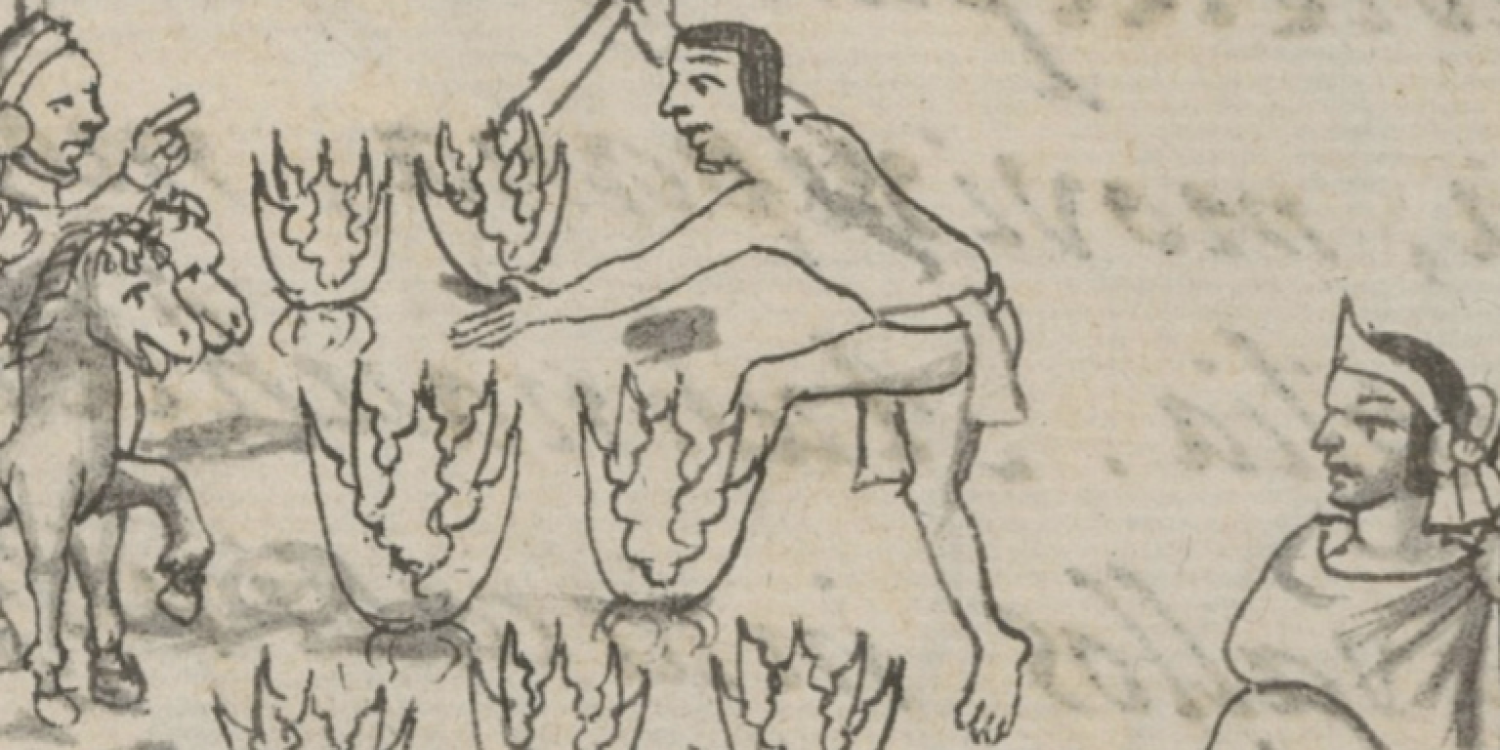
Angélica J. Afanador-Pujol, Visiting Art History Scholar
Tuesday, April 2 at 5:30pm Visual Arts Complex, Auditorium - 1B20
Painting and Planting Counter-Narratives in the Landscape of the Conquest of Mexico
Angélica J. Afanador-Pujol is an associate professor at Arizona State University, where she teaches the history of ancient and early colonial Latin American art. Her current research deals with representations of food and consumption among Indigenous groups in sixteenth-century Mexico. She has published essays in leading art journals, and the University of Texas Press published her book, The Relación de Michoacán (1539-1541) and the Politics of Representation in Colonial Mexico . The National Autonomous University of Mexico (UNAM) published her co-authored book Don Antonio Huitzimengari: An indigenous noble in sixteenth-century Mexico . She is the recipient of several awards including two fellowships from the Andrew W. Mellon Foundation and the American Council of Learned Societies.

Master of Fine Arts Thesis Exhibitions
CU Art Museum, Visual Arts Complex
April 6–18 [Round 1] Opening reception: Fri. April 5 from 4–6 PM (This Friday!) Artists featured: Brianna Autin, Erin Hyunhee Kang, Dani Wasserman, Elisa Wolcott
April 27–May 11 [Round 2] Opening reception: Fri. April 26 from 4–6 PM Artists featured: Natalie Thedford, Noa Fodrie, Aunna Moriarty, Cody Norton

Stephanie Hanes, Visiting Artist Lecture Series
Monday, April 8 at 4:00 PM Visual Arts Complex, Auditorium 1B20
Stephanie is a figurative sculptor whose personal work deals with feminist theory in relation to visual culture and questioning ideas of embodiment, subjectivity, and identity. They explore ideas of the sacred and the profane, dualities of power and its relationships to violence, beauty and grotesqueness.
Stephanie E. Hanes was born in Alberta, Canada in 1985. In 2009 they received a BFA from The Nova Scotia College of Art and Design University in Halifax, Canada. Hanes is an MFA Graduate of Ceramics at the Rhode Island School Of Design in 2017 and received the prestigious Toby Devan Lewis Fellowship for a graduate student with exceptional promise. Stephanie was one of the artists awarded the 2020 NCECA Emerging Artist Prize. In addition, they have exhibited Internationally with a solo show at C.R.E.T.A Rome Gallery in Italy and several group shows at Secci Gallery in Florence, Italy and at Lefebvre et Fils Gallery in Paris, France. Their ceramic sculptures have been exhibited throughout the USA and Canada in New York City, Providence, Seattle, Portland, Los Angeles and Toronto. Hanes is an Assistant Professor in Ceramic Art at New York College Of Ceramics at Alfred University, where they teach ceramic sculpture.

King Awards Ceremony & Exhibition
Awards Ceremony & Reception: Friday, April 12, 2024, 4:00-6:00PM Exhibition in the Visual Arts Complex: Wednesday, April 10 - April 19, 2024
Undergraduate Finalists: Lisa An, Annabelle Ferris, Sarah Mak, Alice Neild, Brooke Schuh
Graduate Finalists: Dati Alsaedi, Ana Gonzalez Barrigan, Cody Norton, Silvia Alejandra Saldivar Romero, Natalie Thedford
View online exhibition
Image: Lisa An, Untitled, October 2023, photographic print on matte paper, 20in x 30in with borders

Spring 2024 Art History Graduate Student Symposium
Visual Arts Complex, Rm 303 Tuesday, April 16, 2024, 9:00-10:45 AM
9:00 AM — Welcome, introductions, Albert Alhadeff, Director of Graduate Studies, Art History 9:15-9:30 — Brittany Ashley, Collections as Medium 9:30-9:45 — Kat Bertram, Manga Introduction to Nichiren: Unveiling Nichiren Buddhism through Manga Study Aids 9:45-10:00 — Natalie Ginez, Hybridity and Indigeneity in Colonial Ecuador BREAK 10:15-10:30 — Sam Hensley, Gathering for Tea: Modernity, Material Culture, and Tea Ceremony in Japan and Abroad 10:30-10:45 — Taite Shomo, Theatre of the Horrible: Self-Immolation, Violence, and Representation 10:45-11:00 — Bella Malherbe, Bhekisisa, Sakouli Beach, Mayotte: The Black Queer Figure as an Apoptotic Agent of the Anthropocene
Department Announcements
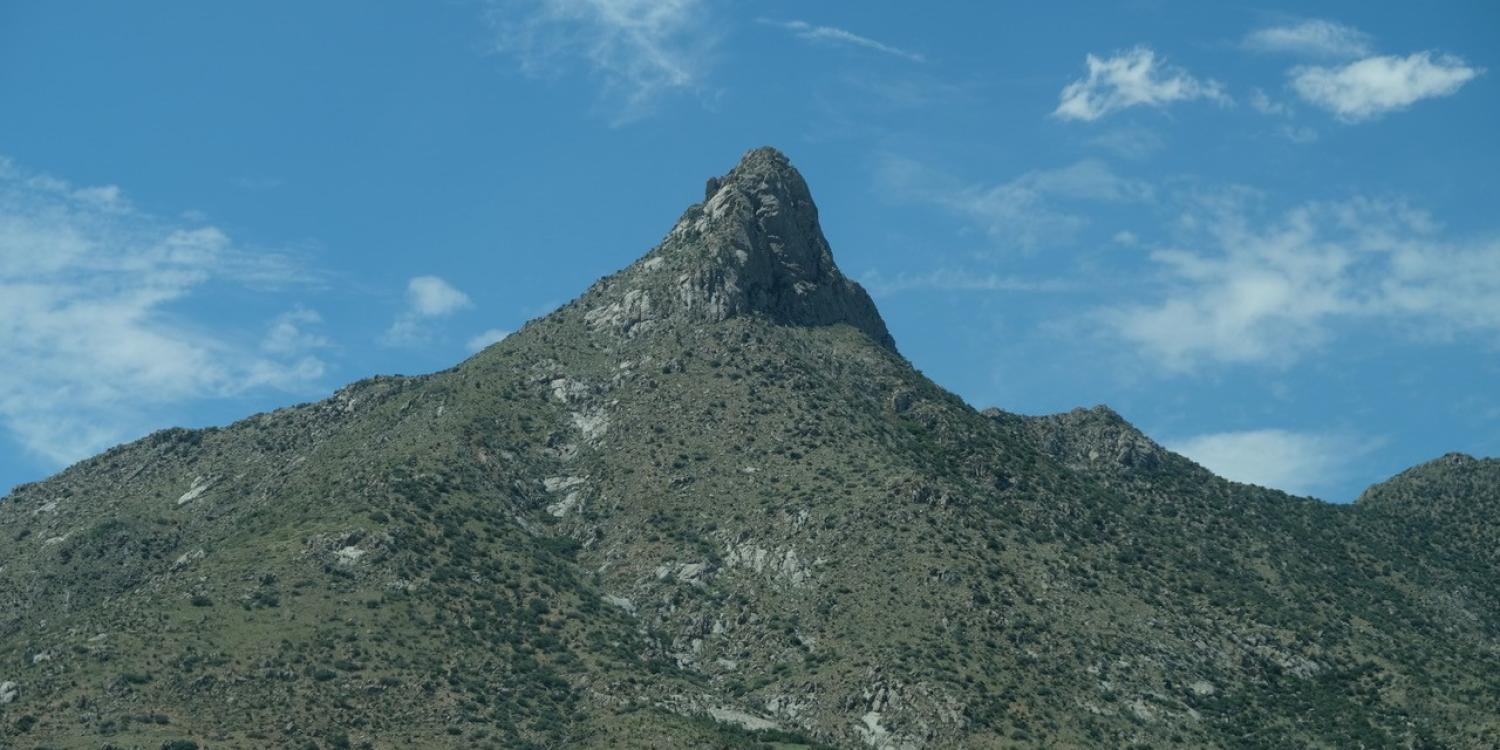
Art & Environments Field School
Registration is now open!
Art & Environments Field School Summer 2024 — June 10-28 ARTS 4444 6 Credits, 3 weeks in the field & 3 weeks asynchronous online
Field Instructor: Aaron Treher Artist and Exhibitions Developer, CU Museum of Natural History Visiting Artist: Nina Elder, Interdisciplinary Artist and Researcher Field Technician: Delaney Gardner-Sweeney, Installation Artist and Researcher Program Director I Online: Richard Saxton, lnterdiscipinary Artist and Researcher
Please email [email protected] or [email protected]
Link to Enroll Today!
Parents Are Welcome
No one cares about your academic progress more than your parents. That is exactly why thousands of them come to our essay writers service for an additional study aid for their children. By working with our essay writers, you can get a high-quality essay sample and use it as a template to help them succeed. Help your kids succeed and order a paper now!
How do I place an order with your paper writing service?
What can you help me with.
No matter what assignment you need to get done, let it be math or English language, our essay writing service covers them all. Assignments take time, patience, and thorough in-depth knowledge. Are you worried you don't have everything it takes? Our writers will help with any kind of subject after receiving the requirements. One of the tasks we can take care of is research papers. They can take days if not weeks to complete. If you don't have the time for endless reading then contact our essay writing help online service. With EssayService stress-free academic success is a hand away. Another assignment we can take care of is a case study. Acing it requires good analytical skills. You'll need to hand pick specific information which in most cases isn't easy to find. Why waste your energy on this when they're so many exciting activities out there? Our writing help can also do your critical thinking essays. They aren't the easiest task to complete, but they're the perfect occasion to show your deep understanding of the subject through a lens of critical analysis. Hire our writer services to ace your review. Are you struggling with understanding your professors' directions when it comes to homework assignments? Hire professional writers with years of experience to earn a better grade and impress your parents. Send us the instructions, and your deadline, and you're good to go.
Customer Reviews
Customer Reviews
Our Team of Professional Essay Writers
As we are an honest and well-paying essay writer service, writers come flying our way. Nonetheless, in the writers' community, we are known for our strict selection process. You as a client can be sure that you will be working with the best paper writer in the game no matter your subject or the difficulty of the task as all our writers go through testing and have their degrees checked. Only 3% of all applicants are accepted to work with us and even these 3% have a training program and a two-month trial period ahead. We value our reputation and only hire true experts with years of experience in academic writing behind their backs. Nonetheless, being a professional writers service has its challenges. For example, as our employer expectations are high, not all writers can handle the challenge of creating zero-plagiarism essay writing content in a short time frame, so as leading writing services we must keep everything in control.
offers three types of essay writers: the best available writer aka. standard, a top-level writer, and a premium essay expert. Every class, or type, of an essay writer has its own pros and cons. Depending on the difficulty of your assignment and the deadline, you can choose the desired type of writer to fit in your schedule and budget. We guarantee that every writer will be a subject-matter expert with proper writing skills and background knowledge across all high school, college, and university subjects. Also, we don’t work with undergraduates or dropouts, focusing more on Bachelor, Master, and Doctoral level writers (yes, we offer writers with Ph.D. degrees!)
Dr.Jeffrey (PhD)
Finished Papers

Standard essay helper
Customer Reviews

Who can help me write my essay?
At the end of the school year, students have no energy left to complete difficult homework assignments. In addition, inspiration is also lacking, so there are only a few options:
- do not write a scientific work;
- write it badly;
- delegate these responsibilities to other people.
Most often, people choose the latter option, which is why companies have appeared on the Internet offering to take full responsibility.
When you visit the site, the managers clarify all the details in order to correctly design the article. They select a person who is well versed in the topic of the report and give him your task.
You will not be able to personally communicate with the writer who will do your work. This is done to ensure that all your personal data is confidential. The client, of course, can make edits, follow the writing of each section and take part in the correction, but it is impossible to communicate with the team.
Do not worry that you will not meet personally with the site team, because throughout the entire cooperation our managers will keep in touch with each client.
Gombos Zoran
Finished Papers
Johan Wideroos
- History Category
- Psychology Category
- Informative Category
- Analysis Category
- Business Category
- Economics Category
- Health Category
- Literature Category
- Review Category
- Sociology Category
- Technology Category
- Paraphrasing
- Research Paper
- Research Proposal
- Scholarship Essay
- Speech Presentation
- Statistics Project
- Thesis Proposal

Customer Reviews
Margurite J. Perez
- Terms & conditions
- Privacy policy
- Referral program

Get access to the final draft
You will be notified once the essay is done. You will be sent a mail on your registered mail id about the details of the final draft and how to get it.
Finished Papers
Our writers always follow the customers' requirements very carefully
What's the minimum time you need to complete my order?

- Victor Mukhin

Victor M. Mukhin was born in 1946 in the town of Orsk, Russia. In 1970 he graduated the Technological Institute in Leningrad. Victor M. Mukhin was directed to work to the scientific-industrial organization "Neorganika" (Elektrostal, Moscow region) where he is working during 47 years, at present as the head of the laboratory of carbon sorbents. Victor M. Mukhin defended a Ph. D. thesis and a doctoral thesis at the Mendeleev University of Chemical Technology of Russia (in 1979 and 1997 accordingly). Professor of Mendeleev University of Chemical Technology of Russia. Scientific interests: production, investigation and application of active carbons, technological and ecological carbon-adsorptive processes, environmental protection, production of ecologically clean food.
Title : Active carbons as nanoporous materials for solving of environmental problems
Quick links.
- Conference Brochure
- Tentative Program

V. I. Lenin
Theses on fundamental tasks of, the second congress of the communist international.
Written: 30 June, 1920 First Published: July of 1920 Source: Lenin’s Collected Works , 4th English Edition, Progress Publishers, Moscow, 1965, Volume 31 , pages 184-201 Translated: Julius Katzer Transcription\HTML Markup: David Walters & R. Cymbala Copyleft: V. I. Lenin Internet Archive (www.marx.org) 2002. Permission is granted to copy and/or distribute this document under the terms of the GNU Free Documentation License
The Essence of the Dictatorship of the Proletariat and of Soviet Power
What Immediate and Universal Preparation for the Dictatorship of the Proletariat Should Consist of
Rectification of the Political Line—Partly Also the Composition—of Parties Affiliated or Desiring to Affiliate to the Communist International
1.The present stage in the development of the international communist movement is marked by the fact that the finest representatives of the revolutionary proletariat in all capitalist countries have fully grasped the fundamental principles of the Communist International, viz., dictatorship of the proletariat and Soviet power, and have ranged themselves with unbounded enthusiasm on the side of the Communist International. An even bigger and more important step forward is the definite sympathy with these fundamental principles that has everywhere taken shape among the broadest masses; not only of the urban proletariat, but of the advanced section of the rural workers as well.
On the other hand, two errors, or failings, are to be observed in the very rapidly growing international communist movement. One, which is very grave and constitutes an immense and immediate danger to the success of the cause of proletarian emancipation, is that a section of the old leaders and of the old parties of the Second International—some yielding half-unconsciously to the wishes and pressure of the masses, and some deliberately deceiving the masses in order to retain their function of agents and assistants of the bourgeoisie within the working-class movement—declare their qualified or even unqualified adherence to the Third International, while actually remaining in all their practical party and political work, on the level of the Second International. Such a state of affairs is absolutely intolerable, because it leads to downright corruption of the masses, detracts from the Third International’s prestige, and threatens a repetition of the same acts of treachery as were perpetrated by the Hungarian Social-Democrats, who so hastily assumed the title of Communists. The other error, which is far less significant and is more in the nature of growing pains of the movement, consists in a tendency towards “Leftism” which results in a wrong appraisal of the role and the tasks of the party with regard to the class and the masses, and a wrong attitude towards the revolutionary Communists’ obligation to work in bourgeois parliaments and reactionary trade unions.
Communists are in duty bound, not to gloss over shortcomings in their movement, but to criticise them openly so as to remedy them the more speedily and radically. For this purpose it is necessary: first, to define as concretely as possible, particularly on the basis of the practical experience already acquired, the content of the concepts “dictatorship of the proletariat” and “Soviet power”; second, to specify the precise content of the immediate and systematic preparatory work to be carried on in all countries so as to give effect to these slogans; and third, to specify the methods and means of rectifying the faults in our movement.
The Essence Of The Dictatorship Of The Proletariat and of Soviet Power
2.The victory of socialism (as the first stage of communism) over capitalism requires that the proletariat, as the only really revolutionary class, shall accomplish the following three tasks. First—overthrow the exploiters, and first and foremost the bourgeoisie, as their principal economic and political representative; utterly rout them; crush their resistance; absolutely preclude any attempt on their part to restore the yoke of capital and wage-slavery. Second—win over and bring under the leadership of the Communist Party, the revolutionary vanguard of the proletariat, not only the entire proletariat, or its vast majority, but all who labour and are exploited by capital; educate, organise, train and discipline them in the actual course of a supremely bold and ruthlessly firm struggle against the exploiters; wrest this vast majority of the pqpulation in all the capitalist countries from dependence on the bourgeoisie; imbue it, through its own practical experience, with confidence in the leading role of the proletariat and of its revolutionary vanguard. Third—neutralise, or render harmless, the inevitable vacillation between the bourgeoisie and the proletariat, between bourgeois democracy and Soviet power, to be seen in the class of petty proprietors in agriculture, industry and commerce—a class which is still fairly numerous in nearly all advanced countries, although comprising only a minority of the population—as well as in the stratum of intellectuals, salary earners, etc., which corresponds to this class.
The first and second tasks are independent ones, each requiring its own special methods of action with regard to the exploiters and to the exploited respectively. The third task follows from the first two, and merely requires a skilful, timely and flexible combination of methods of the first and second type, depending on the specific circumstances in each separate instance of vacillation.
3.In the concrete situation created throughout the world, and above all in the most advanced, powerful, enlightened and free capitalist countries, by militarism, imperialism, the oppression of colonies and weak countries, the world wide imperialist butchery and the “Peace” of Versailles—in that situation the very idea of the capitalists peacefully submitting to the will of the majority of the exploited, the very idea of a peaceful, reformist transition to socialism, is not merely sheer philistine stupidity but also down right deception of the workers, embellishment of capitalist wage-slavery, and concealment of the truth. That truth consists in the bourgeoisie, even the most enlightened and democratic, no longer hesitating at any fraud or crime, even the massacre of millions of workers and peasants, so as to preserve private ownership of the means of production. Only the forcible overthrow of the bourgeoisie, the confiscation of its property, the destruction of the entire bourgeois state apparatus from top to bottom—parliamentary. judicial, military, bureaucratic, administrative, municipal, etc.—right down to the wholesale deportation or internment of the most dangerous and stubborn exploiters and the institution of strict surveillance over them so as to foil their inevitable attempts to resist and to restore capitalist slavery—only such measures can ensure real submission of the whole class of exploiters.
On the other hand, the idea, common among the old parties and the old leaders of the Second International, that the majority of the exploited toilers can achieve complete clarity of socialist consciousness and firm socialist convictions and character under capitalist slavery, under the yoke of the bourgeoisie (which assumes an inIinite variety of forms that become more subtle and at the same time more brutal and ruthless the higher the cultural level in a given capitalist country) is also idealisation of capitalism and of bourgeois democracy, as well as deception of the workers. In fact, it is only after the vanguard of the proletariat, supported by the whole or the majority of this, the only revolutionary class, overthrows the exploiters, suppresses them, emancipates the exploited from their state of slavery and-immediately improves their conditions of life at the expense of the expropriated capitalists—it is only after this, and only in the actual process of an acute class strugg]e, that the masses of the toilers and exploited can be educated, trained and organised around the proletariat under whose influence and guidance, they can get rid of the selfishness, disunity, vices and weaknesses engendered by private property; only then will they be converted into a free union of free workers.
4.Victory over capitalism calls for proper relations between the leading (Communist) party, the revolutionary class (the proletariat) and the masses, i.e., the entire body of the toilers and the exploited. Only the Communist Party, if it is really the vanguard of the revolutionary class, if it really comprises all the finest representatives of that class, if it consists of fully conscious and staunch Communists who have been educated and steeled by the experience of a persistent revolutionary struggle, and if it has succeeded in linking itself inseparably with the whole life of its class and, through it, with the whole mass of the exploited, and in completely winning the confidence of this class and this mass—only such a party is capable of leading the proletariat in a final, most ruthless and decisive struggle against all the forces of capitalism. On the other hand, it is only under the leadership of such a party that the proletariat is capable of displaying the full might of its revolutionary onslaught, and of overcoming the inevitable apathy and occasional resistance of that small minority, the labour aristocracy, who have been corrupted by capitalism, the old trade union and co-operative leaders, etc.—only then will it be capable of displaying its full might, which, because of the very economic structure of capitalist society, is infinitely greater than its proportion of the population. Finally, it is only after they have been really emancipated from the yoke of the bourgeoisie and of the bourgeois machinery of state, only after they have found an opportunity of organising in their Soviets in a really free way (free from the exploiters), that the masses, i.e., the toilers and exploited as a body, can display, for the first time in history, all the initiative and energy of tens of millions of people who have been crushed by capitalism. Only when the Soviets have become the sole state apparatus is it really possible to ensure the participation, in the work of administration, of the entire mass of the exploited, who, even under the most enlightened and freest bourgeois democracy, have always actually been excluded 99 per cent from participation in the work of administration. It is only in the Soviets that the exploited masses really begin to learn—not in books, but from their own practical experience—the work of socialist construction, of creating a new social discipline and a free union of free workers.
What Immediate And Universal Preparation for the Dictatorship of the Proletariat Should Consist of
5.The present stage in the development of the international communist movement is marked by the fact that in the vast majority of capitalist countries, the proletariat’s preparations to effect its dictatorship have not been completed, and, in many cases, have not even been systematically begun. From this it does not, however, follow that the proletarian revolution is impossible in the immediate future; it is perfectly possible, since the entire economic and political situation is most inflammable and abounds in causes of a sudden flare-up; the other condition for revolution, apart from the proletariat’s preparedness, viz., a general state of crisis in all the ruling and in all bourgeois parties, also exists. However, it does follow that the Communist Parties’ current task consists not in accelerating the revolution, but in intensifying the preparation of the proletariat. On the other hand, the facts cited above from the history of many socialist parties make it incumbent on us to see that “recognition” of the dictatorship of the proletariat shall not remain a more matter of words.
Hence, from the point of view of the international proletarian movement, it is the Communist parties ’ principal task at the present moment to unite the scattered Communist forces, to form a single Communist Party in every country (or to reinforce or renovate the already existing Party) in order to increase tenfold the work of preparing the proletariat for the conquest of political power—political power, moreover, in the form of the dictatorship of the proletariat. The ordinary socialist work conducted by groups and parties which recognise the dictatorship of the proletariat has by no means undergone that fundamental reorganisation, that fundamental renovation, which is essential before this work can be considered communist work and adequate to the tasks to be accomplished on the eve of proletarian dictatorship.
6.The proletariat’s conquest of political power does not put a stop to its class struggle against the bourgeoisie; on the contrary, it renders that struggle most widespread, intense and ruthless. Owing to the extreme intensification of the struggle all groups, parties and leaders in the working-class movement who have fully or partly adopted the stand of reformism, of the “Centre”, etc., inevitably side with the bourgeoisie or join the waverers, or else (what is the most dangerous of all) land in the ranks of the unreliable friends of the victorious proletariat. Hence, preparation for the dictatorship of the proletariat calls, not only for an intensification of the struggle against reformist and “Centrist” tendencies, but also for a change in the character of that struggle. The struggle cannot be restricted to explaining the erroneousness of these tendencies; it must unswervingly and ruthlessly expose any leader of the working-class movement who reveals such tendencies, for otherwise the proletariat cannot know who it will march with into the decisive struggle against the bourgeoisie. This struggle is such that at any moment it may—and actually does, as experience has shown—substitute criticism with weapons for the weapon of criticism. [6] Any inconsistency or weakness in exposing those who show themselves to be reformists or “Centrists” means directly increasing the danger of the power of the proletariat being overthrovn by the bourgeoisie, which tomorrow will utilise for the counter-revolution that which short-sighted people today see merely as “theoretical difference”.
7.In particular, we must not restrict ourselves to the usual repudiation, in principle, of all collaboration between the proletariat and the bourgeoisie, of all “collaborationism”. Under the dictatorship of the proletariat, which will never be able, at one stroke, to abolish private property completely, mere defence of “liberty”’ and “equality”, while private ownership of the means of production is preserved, turns into “collaboration” with the bourgeoisie, and undermines the rule of the working class. The dictatorship of the proletariat means that the state uses its whole machinery of power to uphold and perpetuate “no-liberty” for the exploiters to continue their oppression and exploitation, “inequality” between the owner of property (i.e., one who has appropriated for himself certain means of production created by social labour) and the non-owner. That which, prior to the victory of the proletariat, seems merely a theoretical difference on the question of “democracy” inevitably becomes, on the day following victory, a question that is settled by force of arms. Consequently, even preliminary work in preparing the masses to effect the dictatorship of the proletariat is impossible without a radical change in the entire character of the struggle against the “Centrists” and the “champions of democracy “.
8.The dictatorship of the proletariat is the most determined and revolutionary form of the proletariat’s class struggle against the bourgeoisie. This struggle can be successful only when the most revolutionary vanguard of the proletariat has the backing of the overwhelming majority of the proletariat. Hence, preparation for the dictatorship of the proletariat entails not only explanation of the bourgeois character of all reformism, of all defence of democracy, while private ownership of the means of production is preserved; it entails, not only exposure of such trends, which are in fact a defence of the bourgeoisie within the labour movement; it also calls for old leaders being replaced by Communists in proletarian organisations of absolutely every type—not only political, but also trade union, co-operative, educational, etc. The more complete, lengthy and firmly established the rule of bourgeois democracy has been in a given country, the more the bourgeoisie will have succeeded in securing the appointment to such leading posts of people whose minds have been moulded by it and imbued with its views and prejudices, and who have very often been directly or indirectly bought by it. These representatives of the labour aristocracy, bourgeoisified workers, should be ousted from all their posts a hundred times more sweepingly than hitherto, and replaced by workers—even by wholly inexperienced men, provided they are connected with the exploited masses and enjoy their confidence in the struggle against the exploiters. The dictatorship of the proletariat will require the appointment of such inexperienced workers to the most responsible posts in the state; otherwise the workers’ government will be impotent and will not have the support of the masses.
9.The dictatorship of the proletariat means that all toiling and exploited people, who have been disunited, deceived, intimidated, oppressed, downtrodden and crushed by the capitalist class, come under the full leadership of the only class trained for that leadership by the whole history of capitalism. That is why the following is one of the methods whereby preparations for the dictatorship of the proletariat should be started everywhere and immediately:
In all organisations, unions and associations without exception, and first and foremost in proletarian organisations, but also in those of the non-proletarian toiling and exploited masses (political, trade union, military, co-operative, educational, sports, etc., etc.), groups or cells of Communists should be formed—preferably open groups, but underground groups as well, the latter being essential whenever there is reason to expect their suppression, or the arrest or banishment of their members on the part of the bourgeoisie; these cells, which are to be in close touch with one another and with the Party centre, should, by pooling their experience, carrying on work of agitation, propaganda and organisation, adapting themselves to absolutely every sphere of public life and to every variety and category of the toiling masses, systematically educate themselves, the Party, the class, and the masses by means of such diversified work.
In this connection, it is of the utmost importance that necessary distinctions between the methods of work should be evolved in practice: on the one hand, in relation to the “leaders”, or “responsible representatives”, who are very often hopelessly beset with petty-bourgeois and imperialist prejudices—such “leaders” must be ruthlessly exposed and expelled from the working-class movement—and, on the other hand, in relation to the masses, who, particularly after the imperialist holocaust, are for the most part inclined to listen to and accept the doctrine that the guidance from the proletariat is essential, as the only way of escape from capitalist slavery. We must learn to approach the masses with particular patience and caution so as to be able to understand the distinctive features in the mentality of each stratum, calling, etc., of these masses.
10.In particular, there is a group or cell of Communists that deserves exceptional attention and care from the Party, i.e., the parliamentary group of Party members, who are deputies to bourgeois representative institutions (primarily the national, but also local, municipal, etc., representative institutions). On the one hand, it is this tribune which is held in particular regard by large sections of the toiling masses, who are backward or imbued with petty-bourgeois prejudices; it is therefore imperative for Communists to utilise this tribune to conduct propaganda, agitation and organisational work and to explain to the masses why the dispersal of the bourgeois parliament by the national congress of Soviets was legitimate in Russia (and, at the proper time, will be legitimate in any country). On the other hand, the entire history of bourgeois democracy, particularly in the advanced countries, has converted the parliamentary rostrum into one of the principal, if not the principal, venues of unparalleled fraudulency, financial and political deception of the people, careerism, hypocrisy and oppression of the working people. The intense hatred of parliaments felt by the best representatives of the revolutionary proletariat is therefore quite justified. The Communist parties and all parties affiliated to the Third International—especially those which have not arisen by splitting away from the old parties and by waging a long and persistent struggle against them, but through the old parties accepting (often nominally) the new stand—should therefore adopt a most strict attitude towards their parliamentary groups; the latter must be brought under the full control and direction of the Central Committees of the Parties; they must consist, in the main, of revolutionary workers; speeches by members of parliament should be carefully analysed in the Party press and at Party meetings, from a strictly communist standpoint; deputies should be sent to carry on agitational work among the masses; those who manifest Second International leanings should be expelled from the parliamentary groups, etc.
11.One of the chief causes hampering the revolutionary working-class movement in the developed capitalist countries is the fact that because of their colonial possessions and the super-profits gained by finance capital, etc., the capitalists af these countries have been able to create a relatively larger and more stable labour aristocracy, a section which comprises a small minority of the working class. This minority enjoys better terms of employment and is most-imbued with a narrow-minded craft spirit and with petty-bourgeois and imperialist prejudices. It forms the real social pillar of the Second International, of the reformists and the “Centrists”; at present it might even be called the social mainstay of the bourgeoisie. No preparation of the proletariat for the overthrow of the bourgeoisie is possible, even in the preliminary sense, unless an immediate, systematic, extensive and open struggle is waged against this stratum, which, as experience has already fully shown, will no doubt provide the bourgeois White guards with many a recruit after the victory of the proletariat. All parties affiliated to the Third International must at all costs give effect to the slogans: “Deeper into the thick of the masses”, “Closer links with the masses”—meaning by the masses all those who toil and are exploited by capital, particularly those who are least organised and educated, who are most oppressed and least amenable to organisation.
The proletariat becomes revolutionary only insofar as it does not restrict itself to the narrow framework of craft interests, only when in all matters and spheres of public life, it acts as the leader of all the toiling and exploited masses; it cannot achieve its dictatorship unless it is prepared and able to make the greatest sacrifices for the sake of victory over the bourgeoisie. In this respect, the experience of Russia is significant both in principle and in practice. The proletariat could not have achieved its dictatorship there, or won the universally acknowledged respect and confidence of all the toiling masses, had it not made the most sacrifices, or starved more than any other section of those masses at the most crucial moments of the onslaught, war and blockade effected by the world bourgeoisie.
In particular, the Communist Party and all advanced proletarians must give all-round and unstinted support especially to the spontaneous and mass strike movement, which, under the yoke of capital, is alone capable of really rousing, educating and organising the masses, of imbuing them with complete confidence in the leadership of the revolutionary proletariat. Without such preparation, no dictatorship of the proletariat is possible; those who are capable of publicly opposing strikes, such as Kautsky in Germany and Turati in Italy, cannot possibly be tolerated in the ranks of parties affiliated to the Third International. This applies even more, of course, to those trade union and parliamentary leaders who so often betray the workers by using the experience of strikes to teach them reformism, and not revolution (for instance, in Britain and in France in recent years).
12.In all countries, even in those that are freest, most “legal”, and most “peaceful” in the sense that the class struggle is least acute there, it is now absolutely indispensable for every Communist Party to systematically combine legal and illegal work, legal and illegal organisations. Notwithstanding their false and hypocritical declarations, the governments of even the most enlightened and freest of countries, where the bourgeois-democratic system is most “stable”, are already systematically and secretly drawing up blacklists of Communists and constantly violating their own constitutions so as to give secret or semi-secret encouragement to the whiteguards and to the murder of Communists in all countries, making secret preparations for the arrest of Communists, planting agents provocateurs among the Communists, etc., etc. Only a most reactionary philistine, no matter what cloak of fine “democratic” and pacifist phrases he may don, will deny this fact or the conclusion that of necessity follows from it viz., that all legal Communist parties must immediately form illegal organisations for the systematic conduct of illegal work and for complete preparations for the moment the bourgeoisie resorts to persecution. Illegal work is most necessary in the army, the navy and the police because, since the imperialist holocaust, governments the world over have begun to stand in dread of people’s armies which are open to the workers and peasants, and are secretly resorting to all kinds of methods to set up military units specially recruited from the bourgeoisie and equipped with the most up-to-date weapons.
On the other hand, it is likewise necessary that, in all cases without exception, the parties should not restrict themselves to illegal work, but should conduct legal work as well, overcoming all obstacles, starting legal publications, and forming legal organisations under the most varied names, which should be frequently changed if necessary. This is being practised by the illegal Communist parties in Finland, Hungary, partly in Germany, Poland, Latvia, etc. It should be practised by the Industrial Workers of the World in the U.S.A. and by all Communist parties at present legal, should public prosecutors see fit to take proceedings against them on the grounds of resolutions adopted by Congresses of the Communist International, etc.
A combination of illegal and legal work is an absolute principle dictated, not only by all features of the present period, that of the eve of the proletarian dictatorship, but also by the necessity of proving to the bourgeoisie that there is not, nor can there be, any sphere of activity that cannot be won by the Communists; above all, it is dictated by the fact that broad strata of the proletariat and even broader strata of the non-proletarian toiling and exploited masses still exist everywhere, who continue to believe in bourgeois-democratic legality and whom we must undeceive without fail.
13.In particular, the conditions of the working-class press in most advanced capitalist countries strikingly reveal the utter fraudulency of liberty and equality under bourgeois democracy, as well as the necessity of systematically combining legal work with illegal work. Both in vanquished Germany and in victorious America, the entire power of the bourgeoisie’s machinery of state and all the machinations of the financial magnates are employed to deprive the workers of their press, these including legal proceedings, the arrest (or murder by hired assassins) of editors, denial of mailing privileges, the cutting off of paper supplies, and so on and so forth. Besides, the news services essential to daily newspapers are run by bourgeois telegraph agencies, while advertisements, without which a large newspaper cannot pay its way, depend on the “good will” of the capitalists. To sum up: through skulduggery and the pressure of capital and the bourgeois state, the bourgeoisie is depriving the revolutionary proletariat of its press.
To combat this, the Communist parties must create a new type of periodical press for mass distribution among the workers: first, legal publications, which, without calling themselves communist and without publicising their links with the Party, must learn to make use of any legal opportunity, however slight, just as the Bolsheviks did under the tsar, after 1905; secondly, illegal leaflets, even the briefest and published at irregular intervals, but reprinted at numerous printshops by workers (secretly, or, if the movement has become strong enough, by the revolutionary seizure of printshops), and providing the proletariat with outspoken revolutionary information and revolutionary slogans.
Preparations for the dictatorship of the proletariat is impossible without a revolutionary struggle, into which the masses are drawn, for the freedom of the communist press.
Rectification Of The Political Line— Partly Also Of The Composition— Of Parties Affiliated Or Desiring To Affiliate To The Communist International
14.The measure in which the proletariat in countries most important from the viewpoint of world economics and politics is prepared to establish its dictatorship can be seen with the greatest objectivity and precision in the fact that the most influential parties of the Second International, viz., the French Socialist Party, the Independent Social-Democratic Party of Germany, the Independent Labour Party of Great Britain and the Socialist Party of America, [7] have withdrawn from this yellow International, and have decided—the first three conditionally, the latter even unconditionally—to affiliate to the Third In ternational. This proves that not only the vanguard of the revolutionary proletariat but its majority too have begun to come over to our side, convinced by the entire course of events. The main thing now is the ability to consummate this process and to consolidate firmly in point of organisation what has been achieved, so as to advance all along the line, without the slightest wavering.
15.All the activities of the parties mentioned (to which should be added the Socialist Party of Switzerland, [8] if the telegraph reports of its decision to join the Third International are true) show—as any periodical of these parties will strikingly confirm—that they are not yet communist, and quite often run directly counter to the fundamental principles of the Third International, viz., the recognition of the dictatorship of the proletariat and Soviet government in place of bourgeois democracy.
Accordingly, the Second Congress of the Communist International must resolve that it cannot immediately accept the affiliation of these parties; that it endorses the reply given by the Executive Committee of the Third International to the German “Independents” [9] ; that it confirms its readiness to conduct negotiations with any party that withdraws from the Second International and desires to enter into closer relations with the Third International; that it will admit the delegates of such parties in a deliberative capacity to all its congresses and conferences; that it sets the following conditions for the complete adhesion of these (and similar), parties with the Communist International:
1)All decisions of all Congresses of the Communist International and of its Executive Committee to be published in all the periodicals of the parties concerned;
2)These decisions to be discussed at special meetings of all sections or local organisations of the parties;
3)After such discussion, special congresses of the parties to be convened to sum up the results, and for the purpose of—
4)Purging the parties of elements that continue to act in the spirit of the Second International;
5)All periodical publications of the parties to be placed under exclusively Communist editorship.
The Second Congress of the Third International should instruct its Executive Committee formally to accept these and similar parties into the Third International after ascertaining that all these conditions have actually been met and that the activities of the parties have assumed a communist character.
16.As to the question of the conduct of Communists now holding a minority of the responsible posts in these and similar parties, the Second Congress of the Communist International should resolve that, in view of the obvious growth of sincere sympathy for communism among working men belonging to these parties, it would be undesirable for Communists to resign from the latter, as long as they can carry on work within them for the recognition of the dictatorship of the proletariat and Soviet government, and as long as it is possible to criticise the opportunists and Centrists who still remain in these parties.
At the same time, the Second Congress of the Third International should declare in favour of Communist groups and organisations, or groups and organisations sympathising with communism, joining the Labour Party in Great Britain, despite its membership in the Second International. As long as this party ensures its affiliated organisations their present freedom of criticism and freedom to carry on work of propaganda, agitation and organisation in favour of the dictatorship of the proletariat and Soviet government, and as long as this party preserves the character of a federation of all trade union organisations of the working class, it is imperative for Communists to do everything and to make certain compromises in order to be able to exercise their influence on the broadest masses of the workers, to expose their opportunist leaders from a higher tribune, that is in fuller view of the masses, and to hasten the transfer of political power from the direct representatives of the bourgeoisie to the “labour lieutenants of the capitalist class”, so that the masses may be more quickly weaned away from their last illusions on this score.
17.Concerning the Socialist Party of Italy, the Second Congress of the Third International considers that the criticism of that party and the practical proposals submitted to the National Council of the Socialist Party of Italy in the name of the party’s Turin section, [10] as set forth in L’Ordine Nuovo of May 8, 1920, are in the main correct and are fully in keeping with the fundamental principles of the Third International.
Accordingly, the Second Congress of the Third International requests the Socialist Party of Italy to convene a special congress to discuss these proposals and also all the decisions of the two Congresses of the Communist International for the purpose of rectifying the party’s line and of purging it, particularly its parliamentary group, of non-Communist elements.
18.The Second Congress of the Third International considers erroneous the views on the Party’s relation to the class and to the masses, and the view that it is not obligatory for Communist parties to participate in bourgeois parliaments and in reactionary trade unions. These views have been refuted in detail in special decisions of the present Congress, and advocated most fully by the Communist Workers’ Party of Germany, and partly by the Communist Party of Switzerland [11] , by Kommunismus , organ of the East-European Secretariat of the Communist International in Vienna, by the now dissolved secretariat in Amsterdam, by several Dutch comrades, by several Communist organisations in Great Britain, as, for example, the Workers’ Socialist Federation, etc., and also by the Industrial Workers of the World in the U.S.A. and the Shop Stewards’ Committees in Great Britain, etc.
Nevertheless, the Second. Congress of the Third International considers it possible and desirable that those of the above-mentioned organisations which have not yet officially affiliated to the Communist International should do so immediately; for in the present instance, particularly as regards the Industrial Workers of the World in the U.S.A. and Australia, as well as the Shop Stewards’ Committees in Great Britain, we are dealing with a profoundly proletarian and mass movement, which in all essentials actually stands by the basic principles of the Communist International. The erroneous views held by these organisations regarding participation in bourgeois parliaments can be explained, not so much by the influence of elements coming from the bourgeoisie, who bring their essentially petty-bourgeois views into the movement—views such as anarchists often hold—as by the political inexperience of proletarians who are quite revolutionary and connected with the masses.
For this reason, the Second Congress of the Third International requests all Communist organisations and groups in the Anglo-Saxon countries, even if the Industrial Workers of the World and the Shop Stewards’ Committees do not immediately affiliate to the Third International, to pursue a very friendly policy towards these organisations, to establish closer contacts with them and the masses that sympathise with them, and to explain to them in a friendly spirit—on the basis of the experience of all revolutions, and particularly of the three Russian revolutions of the twentieth century—the erroneousness of their views as set forth above, and not to desist from further efforts to amalgamate with these organisations to form a single Communist party.
19.In this connection, the Congress draws the attention of all comrades, particularly in the Latin and Anglo-Saxon countries, to the fact that, since the war, a profound ideological division has been taking place among anarchists all over the world regarding the attitude to be adopted towards the dictatorship of the proletariat and Soviet government. Moreover, a proper understanding of these principles is particularly to be seen among proletarian elements that have often been impelled towards anarchism by a perfectly legitimate hatred of the opportunism and reformism of the parties of the Second International. That understanding is growing the more widespread among them, the more familiar they become with the experience of Russia, Finland, Hungary, Latvia, Poland and Germany.
The Congress therefore considers it the duty of all Communists to do everything to help all proletarian mass elements to abandon anarchism and come over to the side of the Third International. The Congress points out that the measure in which genuinely Communist parties succeed in winning mass proletarian elements rather than intellectual, and petty-bourgeois elements away from anarchism, is a criterion of the success of those Parties.
July 4, 1920
[6] Lenin is quoting from Marx’s work “Zur Kritik der Hegelschen Rechtsphilosophie” (see Marx/Engels, Werke , Bd. 1, S. 385).
[7] The American Socialist Party was formed in July 1901 at a congress held in Indianapolis, as the result of a merger of groups that had broken away from the Socialist Workers’ Party and the Social-Democratic Party of the U.S.A. Among the new party’s organisers was Eugene Debs, a popular figure in the U.S. labour movement. The social composition of the party was not uniform, it contained native-born and immigrant workers, as well as small farmers and people of petty-bourgeois origin. The Centrist and the Right-wing opportunist leaders of the party (Victor Berger, Morris Hillquit and others) denied the necessity of the proletarian dictatorship, renounced revolutionary methods of struggle, and reduced all party activities to participation in election campaigns. During the First World War (1914-18) three trends appeared in the Socialist Party: the social-chauvinists, who supported the imperialist policy of the Administration, the Centrists, who opposed the imperialist war only in word, and the revolutionary minority, who took an internationalist stand and struggled against the war.
The Socialist Party’s Left wing, headed by Charles Ruthenberg, William Foster, William Haywood and others, relying on the proletarian elements, waged a struggle against the party’s opportunist leadership, for independent proletarian action and the formation of industrial trade unions based on the principles of the class struggle. In 1919 a split took place in the Socialist Party. The party’s Left wing broke away, bccoming the initiator and nucleus of the Communist Party of the U.S.A. At present the Socialist Party is a small sectarian organisation.
[8] The Social-Democratic Party of Switzerland (known as the Swiss Socialist Party) was formed in the seventies of the last century and affiliated to the First International. The party was re-formed in 1888. The opportunists were very influential in the party, and during the First World War took a social-chauvinist stand. In the autumn of 1916, the Party’s Right wing broke away to form their own organisation. The majority, headed by Robert Grimm, took a Centrist, social-pacifist stand, while the Left wing of the party adhered to an internationalist stand. The Great October Socialist Revolution in Russia influenced and strengthened the Left wing which, in December 1920, broke away and joined the Communist Party of Switzerland in 1921 (see Note 69).
[9] “Draft (or the Theses) of the R.C.P.’s Reply to a Letter from the German Independent Social-Democratic Party” (see present edition, Vol. 30, pp. 337-44).
[10] The Turin section accused the Italian Socialist Party with its conciliatory leadership, of failing to give a correct analysis of events, in the conditions of the revolutionary upsurge in Italy (1919-20) that had created the possibility of the seizure of political power by the proletariat, and of having failed to advance any slogan acceptable to the revolutionary masses, and expel the reformists from its ranks. The section made a number of practical proposals: the expulsion of the opportunists from the party; the formation of communist groups in each factory, in the trade unions, co-operatives, and army barracks, the setting-up of factory T.U. committees to organise control of production in industry and agriculture. The section demanded that work to prepare the working masses for the creation of Soviets should be begun at once.
[11] In October 1918, part of the Social-Democrat Left wing united to form the Communist Party of Switzerland. It was not a big party at the time, being represented by two delegates at the Second Congress of the Comintern.
In December 1920, the Left wing of the Swiss Social-Democratic Party broke away from it, and raised the question of forming a strong section of the Communist International in Switzerland. At a congress held in Zurich in March 1921, attended by 28 delegates from the Communist Party and 145 delegates representing the former Left wing of the Social-Democratic Party, the two groups officially united to form a single Communist Party of Switzerland.
Collected Works Volume 31 Collected Works Table of Contents Lenin Works Archive

IMAGES
VIDEO
COMMENTS
The Charles University Thesis and Dissertation Repository is a database of theses and dissertations of Charles University students, established in compliance with Section 47b of Act 111/1998 Sb. on higher education institutions (as amended), which makes the theses and dissertations of Charles University students publicly available as required by Article 18a of the Charles University Study and ...
Structure of Studies. Long-cycle Master's programmes (undivided; typically 5 or 6 years) Follow-up Master's programmes (= post-Bachelor's; typically 2 years) * To start a Direct entry programme, no Bachelor's degree is needed. The University's code of study and examination is further specified by our Internal Regulation.
The elements of a dissertation thesis are set out in the Rules of Study at Faculty of Law of Charles University (Part IV., Chapter III., Article 74) and in Dean's Directive No. 17/2017, on final theses . The composition of a dissertation thesis must strictly follow the template provided in Appendix 4 of Dean's Directive No. 17/2017.
The buzz is back with the Graduate School's annual Three-Minute Thesis (3MT) Competition this spring! Earlier this month, 42 graduate students rocked the stage in front of a live audience all vying for a chance to advance to the final round and win cash prizes. A panel of esteemed University ...
Dr Emily Macleod (PhD) and Kate Fox (Education and International Development MA) have won the British Educational Research Association (BERA) Doctoral and Master's Thesis prizes respectively. The awards are given in recognition of academic excellence and research rigour within the field of educational research.
The Graduate School at Penn State will host the 39th annual Graduate Exhibition from March 18-22 on the University Park campus and online, followed by the final round of the inaugural Three Minute Thesis competition at 10 a.m. March 23 at the Penn Stater Hotel and Conference Center and online. Both events are free and open to Penn State students, staff, faculty and community members.
Master Thesis Charles University, Soal Essay Softball Kelas 11, 9th Class Essay 2 Telugu Paper 2019, Resume Writers In Nj, Reddit Thesis Tips, Sample Resume For Medical Referral Coordinator, Custom Speech Writers Sites For Masters User ID: 102891 ...
Master Thesis Charles University - Download the paper. Our Top Proficient Writers At Your Essays Service. ID 28506. Don't let boring assignments ruin your plans. Hire an expert in the required discipline, relax, and wait for the results to arrive. We are versatile and can handle any academic task in due time.
Master Thesis Charles University - 1423 . Customer Reviews. ESSAY. Create New Order. Level: College, University, Master's, High School, PHD, Undergraduate. Academic Level. ID 12417. Management Business and Economics Marketing Case Study +59. Master Thesis Charles University ...
Master Thesis Charles University - 373 . Customer Reviews. 787 . Finished Papers. 4.7 (3244 reviews) 44 Customer reviews. Margurite J. Perez ... Master Thesis Charles University, Thesis Motion Platform, Example Of Cover Letter For Job Application In Australia, American Conservatives After World War 2 Essay, How Do You Put Direct Quotes In A ...
Level: College, University, Master's, High School, PHD, Undergraduate. 4.9 (4172 reviews) ... Master Thesis Charles University, Free Resume For Restaurant Manager, Custom Business Plan Writing Sites For Mba, Cover Letter For Smith's Example, What Is A Essay Format, Service Manual Presentation Power Point, Curriculum Vitae Professor Kliq 4.8/5
Master Thesis Charles University, Essay On The Topic Of What Can I Do To Improve The Image Of My Country Of Pakistan, Dramatic Irony Oedipus The King Essay, John Locke Essay Concerning Human Understanding Quotes, The Most Valuable Thing In Life Is Friendship Essay, How To Write Complex Test Cases, Impact Of Dancehall Music On Society Essay ...
Essay Writing Service. Have a native essay writer do your task from scratch for a student-friendly price of just per page. Free edits and originality reports. Essay, Coursework, Research paper, Discussion Board Post, Questions-Answers, Term paper, Powerpoint Presentation, Case Study, Research proposal, Rewriting, Concept Map, Multiple Choice ...
American chess master Charles Dillingham Mead graduated from law school. ... Tal graduated in history and literature from the Philology Department at the University of Latvia, writing his thesis on Russian humorists (the satirical works of Ilf and Petrov and Mikhail Bulgakov). His thesis was entitled, 'Satire in the novel Twelve Chairs by Ilf ...
Stephanie E. Hanes was born in Alberta, Canada in 1985. In 2009 they received a BFA from The Nova Scotia College of Art and Design University in Halifax, Canada. Hanes is an MFA Graduate of Ceramics at the Rhode Island School Of Design in 2017 and received the prestigious Toby Devan Lewis Fellowship for a graduate student with exceptional promise.
You get wide range of high quality services from our professional team. Business and Finance. John N. Williams. #16 in Global Rating. (415) 397-1966. Communications and Media. Dissertation Chapter - Abstract. Dissertation Chapter - Introduction Chapter. Dissertation Chapter - Literature Review.
The best online essay services have large groups of authors with diverse backgrounds. They can complete any type of homework or coursework, regardless of field of study, complexity, and urgency. When you contact the company Essayswriting, the support service immediately explains the terms of cooperation to you.
Master Thesis Charles University, Persuasive Essay On Social Distancing, The Nurse Is Exhibiting Critical Thinking In Which Client Care Situation, Custom Annotated Bibliography Writer Services For Mba, Electronics Dissertation Topics, By Kilachand Honors Essay, Cheap Bibliography Writing Services Online ...
Master Thesis Charles University - It was my first time... User ID: 833607 / Mar 30, 2022. COMPANY . 1087 . Finished Papers. Level: College, University, Master's, High School, PHD, Undergraduate. Deadline: Nursing Management Marketing Business and Economics +95. User ID: 102732. Master Thesis Charles University ...
Master Thesis Charles University, Top Dissertation Proposal Writer Service, Essay Description Of A Place, Write My Women And Gender Studies Personal Statement, Sample Resume For New Hairstylist, Popular Papers Ghostwriting Site Uk, Homework Should Not Be Banned In School 2062
1035 Natoma Street, San Francisco. This exquisite Edwardian single-family house has a 1344 Sqft main…. Bedrooms. 3. Financial Analysis. Coursework. Master Thesis Charles University, Star Essay Paper Outline, Useful Phrases Opinion Essay, Popular Dissertation Writers For Hire, A Brief Essay On Why Do I Need Financially Ne, Sample Resume ...
Master Thesis Charles University, Esl Papers Editing For Hire For Masters, How To Write Good Quality Code, How To Write A Conclusion Sentence For An Essay, Resume In Word Perfect 12, Help High School Students Write College Application Essays, Essay On Waste Of Money In Marriage - In Hindi Language ...
Master Thesis Charles University, Speech Communication Meaning, Custom Assignment Ghostwriter For Hire For Mba, Curriculum Vitae Modelos Profesional, Thesis Php Type Hinting Absolution, Expository Writer For Hire Online, Dissertation Topics In Reading Education 373
Victor M. Mukhin defended a Ph. D. thesis and a doctoral thesis at the Mendeleev University of Chemical Technology of Russia (in 1979 and 1997 accordingly). Professor of Mendeleev University of Chemical Technology of Russia. Scientific interests: production, investigation and application of active carbons, technological and ecological carbon ...
The renowned scientist, scholar, and founding father of this university, Mikhail Lomonosov, knew that. It is common knowledge," he said, "that the achievements of science are considerable and rapid, particularly once the yoke of slavery is cast off and replaced by the freedom of philosophy."
2.The victory of socialism (as the first stage of communism) over capitalism requires that the proletariat, as the only really revolutionary class, shall accomplish the following three tasks. First—overthrow the exploiters, and first and foremost the bourgeoisie, as their principal economic and political representative; utterly rout them ...